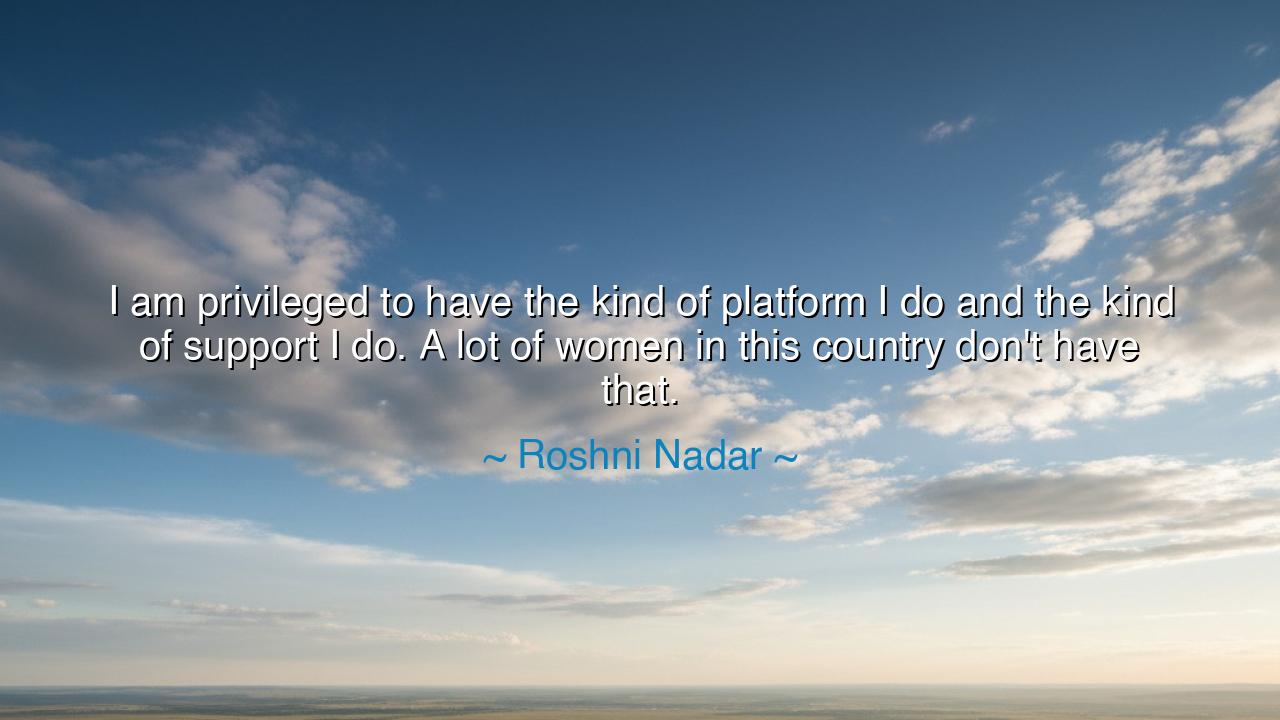
I am privileged to have the kind of platform I do and the kind
I am privileged to have the kind of platform I do and the kind of support I do. A lot of women in this country don't have that.






The words of Roshni Nadar — “I am privileged to have the kind of platform I do and the kind of support I do. A lot of women in this country don’t have that.” — are spoken with humility and the weight of responsibility. In them, she acknowledges that her place of influence is not merely her own doing, but the fruit of circumstance, education, and opportunities denied to many. She declares that privilege is not to be hidden or denied, but to be recognized as a trust — a call to action for those who cannot yet stand on equal ground.
At its heart, this saying speaks to the disparity between possibility and reality. While a few rise to positions of power and recognition, countless women remain bound by poverty, custom, or lack of opportunity. Nadar’s words are not self-congratulation but confession: she knows her voice is amplified not only because of her gifts, but because fate and family gave her a platform that others lack. Her wisdom lies in this awareness, for the greatest danger of privilege is to forget it exists.
History echoes this truth. Consider Eleanor Roosevelt, who as First Lady of the United States used her platform not to bask in status but to champion civil rights, refugees, and the voiceless. She knew that millions of women and men without wealth or power could not speak as she could. Like Nadar, she treated privilege as stewardship — proof that when destiny grants one a voice, it must be used to uplift those without.
Nadar’s words also unveil the hidden structure of support. Behind every leader stand networks of family, mentors, and institutions. Many women, especially in societies marked by inequality, are denied such scaffolding. They are told to dream small, to remain unseen, to accept silence as destiny. To highlight this truth is to honor their struggle and to remind the world that true progress will come only when support and opportunity are not rare gifts, but common inheritance.
Let future generations hold this wisdom: to recognize one’s privilege is the beginning of justice. A platform is not a pedestal for pride, but a pulpit for service. Roshni Nadar’s words shine as a call to those with power and voice: use them, not to elevate yourself, but to raise those who cannot yet rise. For a society is not measured by the few who stand at the top, but by how it lifts the many who remain unseen.






AAdministratorAdministrator
Welcome, honored guests. Please leave a comment, we will respond soon